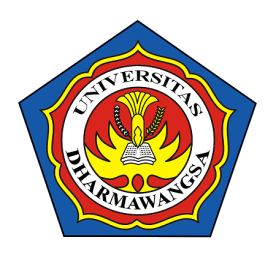Implementasi Data Mining Dengan Metode Regresi Linier Untuk Memprediksi Laju Pertumbuhan Penduduk Kota Binjai
Keywords:
Data Mining, Population Growth Rate, Linear Regression, Google Collab ResearchAbstract
The Central Statistics Agency (BPS) is a ministerial institution tasked with conducting statistical data collection and is directly responsible to the president. One of BPS's duties and functions is to collect statistical data on the population. The BPS conducts routine data collection every few years. However, BPS Binjai City has difficulty estimating the annual population growth rate due to several constraints. Data mining techniques using linear regression methods can be used to estimate the growth rate. The data mining process begins with data selection from source data to target data, followed by preprocessing to improve data quality, transformation, data mining, and interpretation and evaluation. This process produces new knowledge that is expected to contribute to a better understanding. This method was chosen because it can generate predictions using population growth data, thus establishing useful relationship patterns. Linear regression analysis is a widely used statistical method in social research, particularly economic research. Linear regression is a data mining technique frequently used to determine the level of relationship between dependent variables and the effects of forecasting through independent variables or individual causes. Data processing was performed using Google's Collab Research software, using a dataset from 2019 to 2024, covering the male and female population of Binjai City. Data mining results using a linear regression model on BPS population data from 2019 to 2024 indicate that the population growth rate will increase by 3.01% in 2025.
Downloads
References
R. Pancasasti and E. Khaerunisa, Analisis Dampak Laju Pertumbuhan Penduduk Terhadap Aspek Kependudukan Berwawasan Gender Pada Urban Area Di Kota Serang, Serang, 2022.
I. Indriani, D. Siregar and A. Windarto, Penerapan Metode Linear Regression Dalam Mengestimasi Jumlah Penduduk vol 9, no 4, pp 1112-1116, 2022.
B. Binjai, "Jumlah Penduduk Kota Binjai Menurut Kecamatan Dan Jenis Kelamin," 2024. [Online]. [Accessed NOVEMBER 2025].
D. S. O. Panggabean, E. Bulolo and N. Silalahi, "Penerapan Data Mining Untuk Memprediksi Pemesanan Bibit Pohon Dengan Regresi Linear Berganda," JURIKOM (Jurnal Riset Komputer), pp. 7(1), 56-62, 2021.
N. P. M. Rahmadani, Optimalisasi Kinerja Pegawai Pertanian : Studi Kasus Penggunaan Algoritma Regresi Linier, PT. Lestari Nusantara Abadi Grup, 2024.
M. Arhami and M. Nasir, Data Mining - Algoritma dan Implementasi, Andi, 2021.
Kusrini and T. L. Emha, Algoritma Data Mining, Yogyakarta: Andi Offset, 2021.
A. Asroni, R. Nizar, D. E. Mutryarny, U. Lancang and K. Pekanbaru, Penerapan Metode Clustering Dengan Algoritma K-Means Pada Pengelompokan Data Calon Mahasiswa Baru [9] Di Universitas Muhammadiyah Yogyakarta, Yogyakarta: Semesta Teknika, 21(1), 60-64, 2021.
M. Kafil and F. T. Industri, Penerapan Metode K-Nearest Neighbors, 3(2), 59-66, 2023.
D. Haryadi, D. Marini Umi Atmaja, A. Rahman Hakim and N. Suwaryo, Identifikasi Tingkat Resiko Penyakit Stroke Menggunakan Algoritma Regresi Linier Berganda, Deny Haryadi, SNTEM, 2021.
L. Jäntschi, L. L. Pruteanu and A. C. Cozma, "Inside of the linear relation between dependent and independent variables, Computational and mathematical methods in medicine," pp. Vol 1, pp: 1-11, 2021.
T. I. Tri Indarwati, "Penggunaan Model Linier Regression Untuk Prediksi Penjualan Smartphone," Jurnal TIKomSi, 2021.
R. G. Guntara, "Pemanfaatan Google Colab Untuk Aplikasi Pendeteksian Masker Wajah Menggunakan Algoritma Deep Learning YOLOv7," Jurnal Teknologi dan Sistem Informasi Bisnis , pp. vol. 5, no. 1, pp 55-60, 2023.
G. E. Soen, "Implementasi Cloud Computing dengan Google Colaboratory Pada Aplikasi Pengolah Data Zoom Participants," JITU, 2022.
B. M. Pratiwi and N. Q. Nada, "Penerapan Model Machine Learning dalam Menentukan Rekomendasi Objek Wisata Provinsi Jawa tengah," 2022.
Downloads
Published
Issue
Section
License
Copyright (c) 2025 Muhammad Imam Nawawi Pasaribu

This work is licensed under a Creative Commons Attribution-ShareAlike 4.0 International License.









